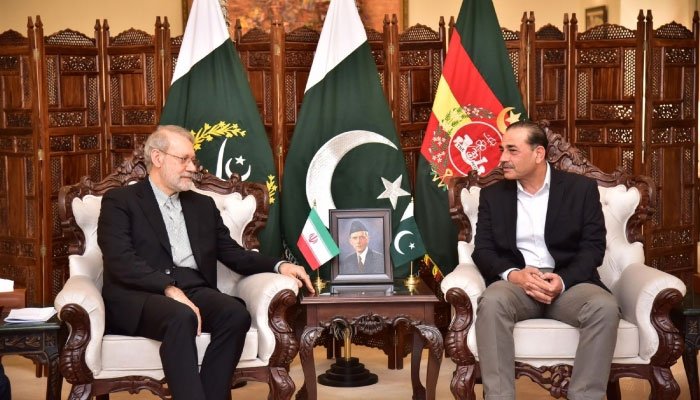Federal Planning Minister Ahsan Iqbal has confirmed that Pakistan will land on the Moon by 2035, outlining a bold vision for the country’s space program. The statement marks a historic milestone and reaffirms Pakistan’s commitment to emerging as a key player in space technology.
The announcement came after the successful launch of a new remote sensing satellite, developed by the Space & Upper Atmosphere Research Commission (SUPARCO). The satellite was launched with China’s assistance and has successfully entered orbit.
A Bold New Chapter
Speaking at a press briefing, Iqbal stated, “We will reach the Moon by 2035.” He explained that the mission is part of a broader plan to rebuild Pakistan’s global standing in science and technology. The Moon mission is not a standalone event. It forms part of the government’s Vision 2035 initiative, which aims to transform the country through innovation and space research.
Recent Satellite Launch and SUPARCO’s Role
The Minister congratulated the nation on the successful satellite launch. He praised SUPARCO engineers and scientists for their hard work and expertise. “We are proud of our scientific community,” he said.
This latest satellite will boost Pakistan’s capabilities in monitoring the environment, managing natural resources, and responding to disasters. Officials believe it will directly contribute to national development and security.
Strong Collaboration with China
Iqbal thanked China for its consistent support. “We are grateful for China’s strong cooperation,” he said, confirming the satellite’s entry into orbit. China and Pakistan have worked closely on space-related projects under their strategic partnership.
Earlier this year, Pakistan’s ICUBE-Q satellite successfully entered lunar orbit on board China’s Chang’e-6 mission. This mission marked Pakistan’s first direct engagement with lunar exploration and laid the groundwork for future ventures.
First Astronaut Mission Planned for 2026
In another major announcement, Iqbal revealed that Pakistan will send its first astronaut into space in 2026. The mission, supported by China, would be another historic step in the country’s space journey.
“This is not just about reaching space—it’s about inspiring the next generation,” Iqbal added. He emphasized that the astronaut program aims to develop local expertise in aerospace engineering and space sciences.
Broader Vision for Science and Technology
Pakistan’s space ambitions are closely tied to the government’s long-term development goals. Iqbal said that investing in space technology is critical for achieving economic stability and technological independence.
He explained that space programs offer benefits across sectors, including defense, agriculture, urban planning, and telecommunications. “Countries that lead in space also lead in innovation,” he noted.
Transitioning Toward a Knowledge Economy
The Planning Minister stressed that space exploration is vital for Pakistan’s economic future. “We can’t afford to lag behind,” he said. He pointed out that scientific investments bring not only prestige but also real-world applications that improve lives.
The new satellite will provide real-time data for weather forecasting, crop monitoring, and disaster response. These capabilities will help policymakers make informed decisions.
Public Reaction and Scientific Community Response
The announcement has sparked excitement among students, researchers, and tech professionals. Many experts view it as a turning point for Pakistan’s space journey. Dr. Farhan Jamil, a researcher at NUST, said, “A clear timeline like 2035 gives purpose to our efforts. Now we need execution.”
However, some voices have raised concerns about funding and technical readiness. Despite this, the Planning Minister remains confident. “Visionary goals attract visionary minds,” he said. “This is how progress begins.”
READ MORE: Govt bans road travel to Iraq, Iran amid security threat
Next Steps and Strategic Planning
The Planning Ministry will soon release a detailed roadmap for the Moon mission. It will include timelines, technology development goals, and astronaut training programs. SUPARCO is expected to lead the project with support from academic institutions and international partners.
Furthermore, partnerships with China will continue to play a central role. Pakistan also plans to engage with other space agencies for knowledge-sharing and joint research.





